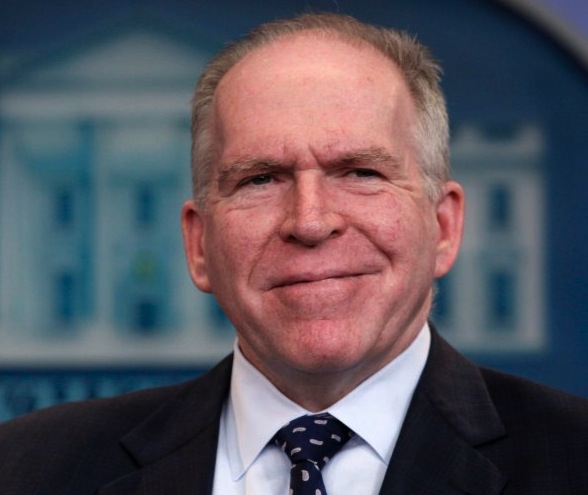The head of the US Central Intelligence Agency says Iran entered nuclear talks with the United States only after President Rohani convinced Supreme Leader Ali Khamenehi that Iran’s economy would collapse under the weight of sanctions if something wasn’t done to get them removed.
Speaking last Tuesday at the Kennedy School of Government at Harvard University, CIA Director John O. Brennan suggested that Khamenehi had made a careful political calculation: If the effort to reach an accord collapsed, or the price seemed too high, prominent members of Rohani’s government could be blamed, starting with the lead negotiator, Foreign Minister Mohammad-Javad Zarif.
“I think Khamenehi was in the position of being able to say to Rohani and Zarif, ‘Okay, see if you can get a deal,’ ” said Brennan. “Because, if you do, Khamenehi is going to

be able to derive the benefits from it, and, if you don’t get one, Rohani has Zarif to blame.”
Brennan did not say how the he got such details about the Supreme Leader. But his use of the term “I think” suggested he was speculating rather than presenting factual information obtained through espionage.
“I think over time Rohani was able to explain to Khamenehi just how challenging the economic environment was in Iran right now, and it was destined to go down,” he said. “The only way they were going to address” the problem was to get sanctions lifted.
Brennan described Rohani as a man who “has a history of engaging with the West, and he is much more practical and reasonable individual.” That was a direct rejection of the view of Israeli Prime Minister Binyamin Netanyahu who has called Rohani “a wolf in sheep’s clothing—a wolf who thinks he can pull the wool over the eyes of the international community.”
Brennan indicated that the provisions of the accord that allow international inspectors to track Iran’s nuclear program from uranium mines to enrichment all the way to the waste dump after use was important for intelligence gathering about Iran’s nuclear capabilities.
Brennan also dismissed as “wholly disingenuous” Netanyahu’s claim that the framework accord would provide Iran with a “pathway to a bomb.”
Without naming Netanyahu, but quoting from his language, Brennan said he was “pleasantly surprised” that the Iranians had given up as much as they did. “When I look at the concessions that they made, going from 19,000 centrifuges to 6,000 centrifuges, with 5,000 still operating, nobody thought they would do it,” Brennan said.
Brennan hinted he had little expectation that the agreement would change Iran’s behavior in the region, including its sponsorship of terrorism. And he acknowledged that the increased revenue Iran would receive as sanctions are lifted could bolster those efforts.
“I don’t think this is going to lead to a light switch and the Iranians are going to become passive, docile,” he said. Iran might well “cause more trouble throughout its area.”
